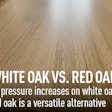I had a recent conversation about the pending case on imported Chinese hardwood flooring with someone who thinks dumping duties were a great idea-the higher the better-but not because he believed the Chinese were actually dumping product. Rather, he felt it was a great way to punish Chinese companies for all their supposed anti-green evils.
The reasoning was that since the Chinese supposedly use nothing but illegal wood, process everything with poisonous chemicals, have no worker protection, and clearly take great delight in polluting the environment, they should be punished-and these punitive antidumping duties were a great way to do it.
I have three primary responses to this line of reasoning, because however emotionally appealing it may be, I believe it to be wrong.
1) First and foremost, I do not believe that most Chinese flooring companies are doing any of those things.
I've been working in China for over 20 years. When I first went over, all factories were state-run. Frankly, if you had asked me 20 years ago if the production was government-subsidized, I would have had to say yes. These mills pulled heavily from nearby state forests and had terrible recovery percentages because the raw material was not properly valued as a resource and because they were using hand-me-down Soviet technology. Formaldehyde was not a consideration for them.
Today, most mills supplying the American market are privately held enterprises. They are modern facilities run to tight specifications. Many are ISO-certified for both the 9001 management condition and the 14001 series, for environmental management.
The factories are tightly controlled for profitability, which includes limiting waste, working to reduce power and water consumption, and recycling their resources. Most of the Chinese mills recover a greater percentage of wood fiber from a low-grade log than mills anywhere else in the world. An increasing number are FSC-certified.
They use international glues and finishes (often European) for quality and most are working aggressively to improve their sourcing to ensure legality and long-term sustainability of the world's wood resources. Like all true wood people, they have become environmentalists, recognizing that their long-term business health relies on the long-term health of the forests.
2) Second, using U.S. trade remedy laws and the International Trade Commission (ITC) system to punish Chinese manufacturers for their assumed environmental sins is simply wrong. The ITC system is specifically designed to review conditions of foreign subsidies and aggressive dumping activities. There are other policies in place and laws in development that are looking to address environmental issues.
For example, some legislators have proposed a "pollution tax" or "carbon emission fees" on certain imports. (These taxes/fees may be appropriate or not. They may also be found inconsistent with WTO rules, but these are other issues for another discussion. The point is, the issue should not be addressed within the structure of a dumping case.)
Other regulatory acts are addressing some of the environmental concerns now. CARB and the new EPA regulations are designed to limit formaldehyde emissions on all glued wood products, no matter what their origin, and the Lacey Act (as well as the new laws in Europe, Japan and Australia) provides very clear punishments for the trade in illegal wood.
The market can make choices-people can choose to follow certain green building certification programs that have set specific standards for material input, production systems, and chemical usage, again, regardless of the product's origin. People can choose, or not choose, a product made in any country.
3) So this leads to my third point in response. Why do you think the Chinese condition has improved so much in 20 years? Let's talk about that next week.
































